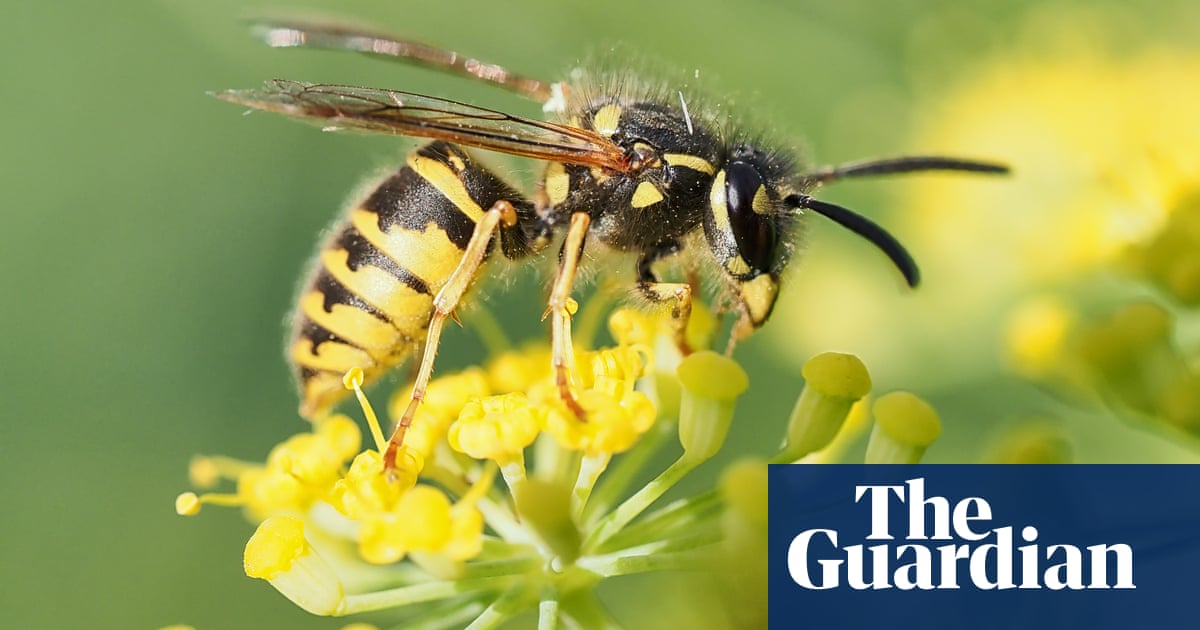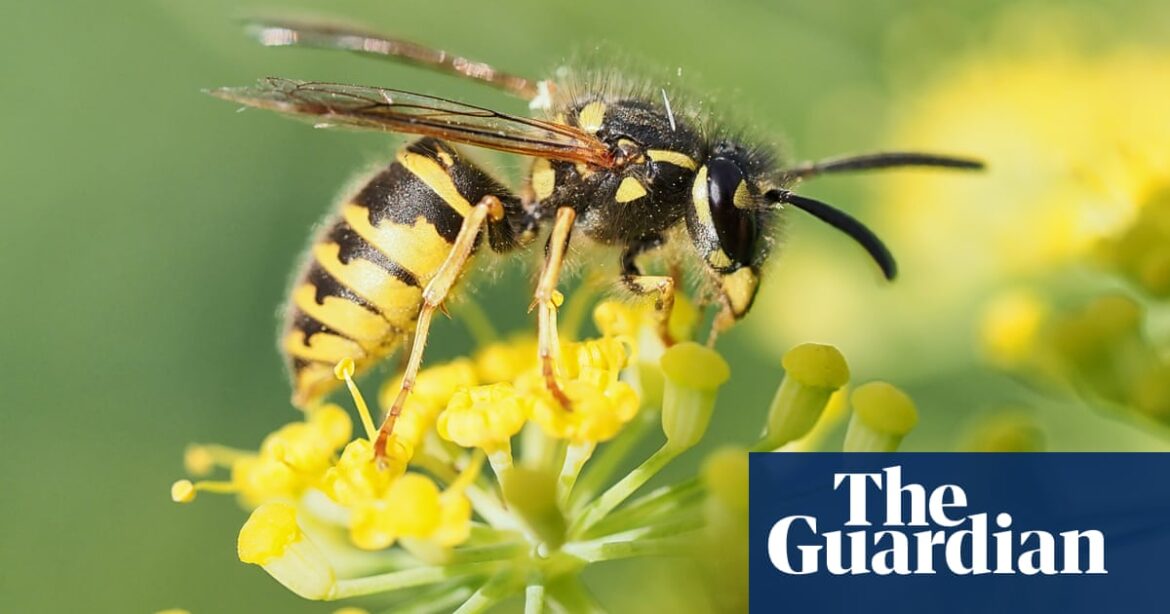
The UK is not doing enough to track wasp populations as numbers appear to plummet, a leading expert has warned.
While there were national monitoring schemes for some invertebrates, including bees and butterflies, there was no such programme in place for wasps, said Dr Gavin Broad, principal curator of wasps at the Natural History Museum.
This year, wasps appear to have faced a sharp decline, with the colder and wetter weather believed to have dampened their numbers, as reported by gardeners, experts and pest controllers.
Board said this gap in knowledge meant there was not enough information about the long-term population trends of wasps.
He said: “We don’t really know much about the populations of wasps. The common wasp [Vespula vulgaris] and German wasp [Vespula germanica] seem to have cycles of abundance and decline, probably a result of the weather, but there is no systematic recording of numbers.”
The UK Centre for Ecology and Hydrology had a pollinator monitoring scheme, he said, but this mostly focused on bees and hoverflies.
“This is a shame as – anecdotally – it seems that some species are declining in the long term, whereas other species, especially the hornet (Vespa crabro) are clearly doing rather well. Wasps sit at the top of the insect food chain so the health of their populations could tell us a lot about the general state of insect populations.”
Climate breakdown is bringing more extreme weather to the UK and this is predicted by the Met Office to include heavier and more frequent downpours and disrupted seasons. This affects creatures such as wasps, which make their nests in the ground and are therefore sensitive to flooding.
The Royal Horticultural Society has said that members have been calling its advice hotline all summer asking why there are no wasps in their gardens. The horticulture charity has previously named wasps as a beneficial garden insect, as they are vital garden predators, feeding on everything from caterpillars to greenfly. They are also important pollinators.
Pollinator numbers as a whole are dropping; government data surveying nearly 400 bee and hoverfly species found that 42% have become less widespread in the UK since 1980. It is thought this is due to the prevalence of pesticides, loss of food plants and habitat due to intensive farming and development, and climate breakdown.
This year, the charity Butterfly Conservation issued a warning as its annual butterfly count had so far found the lowest numbers on record.
Source: theguardian.com



